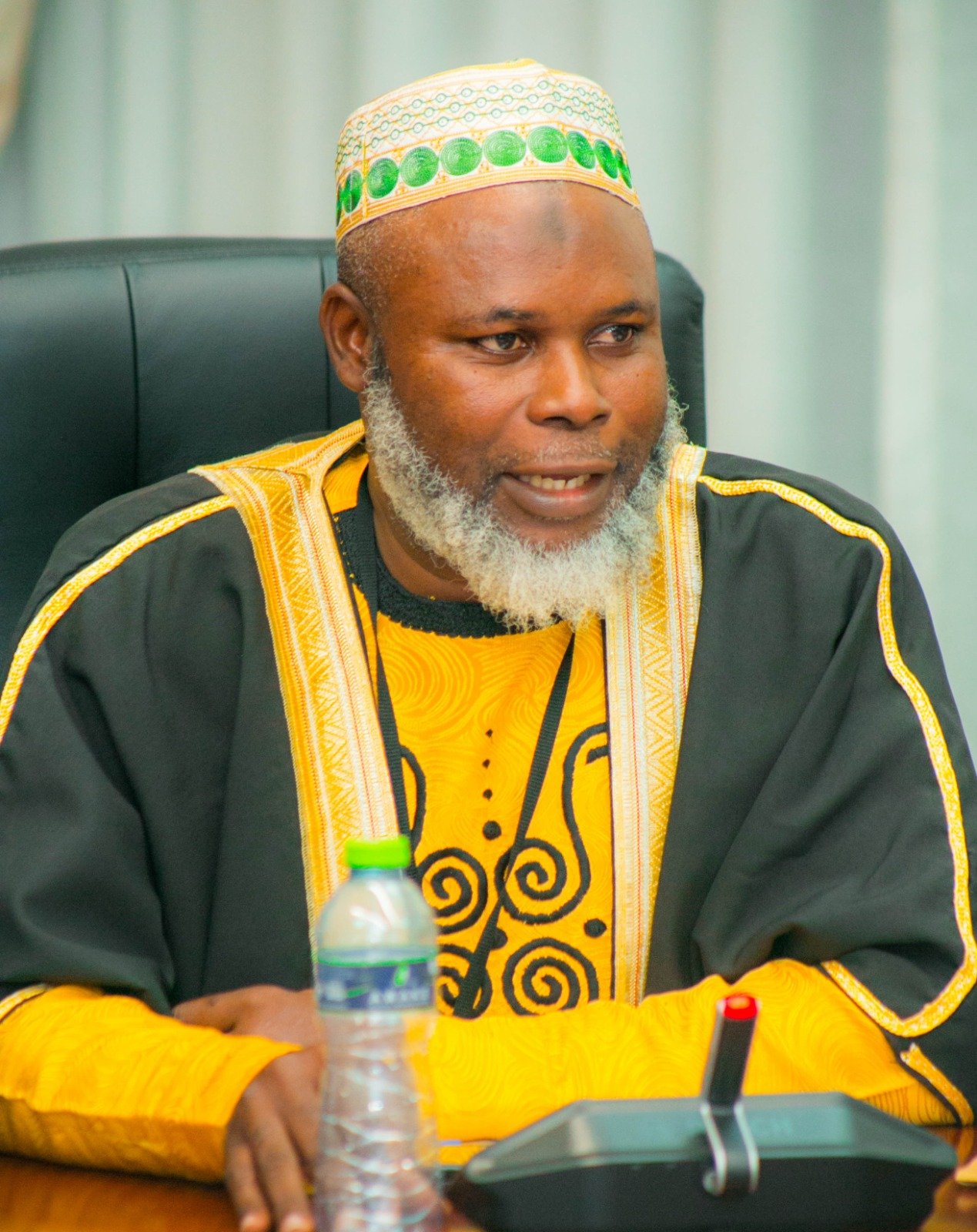Fruitful Living
25 ways to build your faith in God and trust Him in everything (Part 1)
And without faith it is impossible to please God because anyone who comes to Him must believe that He exists and that He rewards those who earnestly seek Him – Hebrews 11:6 NIV
INTRODUCTION
Hebrews 11:6 tells us that without faith, it is impossible to please God. Since pleasing God is essential to an abundant life, building our faith is a natural and essential step. We are living in a world where the temptation to doubt God is constant. His children need more than ever to learn how to trust in His goodness and have strong faith.
Below are some practical ways to move toward a stronger faith and a heart that trusts God’s promises.
- REMEMBER GOD’S FAITHFULNESS.
Our faith will naturally grow when we make a conscious effort to look for ways to trust God. Let us pray and seek the Lord’s help when faced with a need or going through a difficult time in your life. Then let us watch and wait. He will move because we are trusting in Him. Once we see His intervention or Him speaking into our difficulty, we will have something to hold onto; our heavenly Father cares and moves on our behalf! The next time we find it difficult to trust God, let us remember He has moved on our behalf before, and He will do it again. Step by step, we will build a strong faith that will help us overcome life’s challenges.
- START A PRAYER AND PRAISE JOURNAL
When we stand face to face with spiritual obstacles and feel the crushing weight of our burdens, it causes us to forget what God has already done for us. A simple way to keep our focus on God in those moments is to start a prayer and praise journal. Let us use our journal (note book) to write down prayer requests, including the date we entrusted them into God’s hands. When God answers our prayer, we should add that information to our journal. Our journal (note book) will contain the evidence you need to face difficult times with a deeper trust in our loving Father’s faithfulness.
- REFLECT ON GOD’S PROMISES
Difficult things often arrive suddenly in our lives, as if dropping out of the sky onto our path. All we can see at that moment is a mountain. It blocks our progress and our vision of what lies ahead. When we focus on the mountain, we lose faith in God. The Bible tells of God’s children overcoming obstacles with His help. Let us ask God to give us the strength to climb our mountain or make a way through to the other side. As God takes us by the hand and leads us to victory, our trust will soon overshadow all our mountains.
- TRUST GOD’S PLANS.
When we receive bad news or come face to face with a difficult circumstance, often it shakes us to our core and fear sets in. A perfect way to build the kind of faith that does not fail is to always trust in God’s plans. He knows our future and has plans to prosper us. Life-shattering moments are no surprise to God, even if tears fill our path. Let us memorise Jeremiah 29:11 and hold it in our heart. When we face the temptation to doubt God’s presence in our lives, this Bible verse can be a reminder that we never walk alone. Walking with the Lord is the best way to learn to trust Him with everything.
- PRAY GOD’S PROMISES BACK TO HIM.
A great way to increase our faith is to pray for the promises found in God’s Word. Some promises in the Bible are for a specific person or people. Faith, however, calls us to believe that if God did it for those people, He can do it for us. Let us search for Bible verses that we can pray over any situation. Our faith can easily grow with each answer to a prayer that we receive, each promise He grants, and each deliverance He provides. He can also test our faith when He determines it is in our best interest for us to pass through the circumstance. Praying His Word back to Him will show us a lot about our faith and teach us about the will of God.
- SET ASIDE TIME TO LISTEN.
Our lives are full of things demanding our attention and draining our time. There is a remedy for these distractions: Let us start listening to the Word of God on a daily basis. Instead of listening to music on the radio during our drive to work, we could try listening to a podcast of our favourite pastor. Instead of spending two or three hours a night watching our favourite TV programmes, let us set aside some time for a Bible study instead. Philippians 4:8 provides a list of what we should focus on, but life chokes these things out. Taking intentional steps to listen to the teaching of His Word will bring direction, hope and growth to our lives.
- ASK THE LORD JESUS TO INCREASE YOUR FAITH.
There is a simple way to grow our faith: let us ask Christ Jesus to increase it. His followers asked Him to increase their faith in Luke 17:5, and they saw His miracles and listened to His teachings firsthand. If they needed more faith to accomplish the Lord’s will, how much more do we?
To build our faith, let us ask the Lord to increase it to the measure needed to fulfill His will. God is faithful to His children, and His desire is for us to walk in faith. So, let us boldly ask the Lord for a full measure of faith.
- READ AND MEMORISE GOD’S WORD.
There are a lot of bad things dominating our hearts and minds, most of which will serve no purpose in hard times. In comparison, the Word of God is a pillar of fire guiding us through the darkness of difficult circumstances. Reading the Bible reveals God’s goodness and faithfulness. Our faith will deepen when we learn about the God we serve. Memorising Bible verses will help us when we are faced with trials. We will come out to the other side of our trial in victory. We won’t be victorious because of our strength, but because we trusted in God. Each time we overcome with help from the Word of God, our trust will be stronger.
- SURRENDER YOUR TRUST TO GOD.
The sin of self-reliance is a prime example of lacking trust in God. If we are not trusting God, then our faith is based on something else. Having faith in other things restricts the power of God in our lives. Eventually, we are disappointed because of human limitations. Let us note the areas of our lives in which we have not surrendered into God’s hands and then let us ask Him to take control. Let us trust our lives to God’s plans and God’s ways. This will grow our faith because we learn that His ways are far better than anything we could have imagined. Let us surrender results in a stronger faith and a deeper trust in God.
- IDENTIFY AREAS OF UNBELIEF
Mark 9:24 is a picture of what happens when unbelief meets Jesus Christ face-to-face. The father in this story brought a profound, personal need before the Lord, and the encounter revealed his unbelief. It is best not to wait until we are in a crisis to discover our unbelief because unbelief hinders our faith. Let us ask God to examine our heart and write down what He reveals. Let us fight against our unbelief with the help of the Word of God. As we move from unbelief to belief, our faith and trust in God will flourish.
- TRUST GOD WITH YOUR PAIN
When difficult times come, it is easy to question the goodness of God. Our heart then starts equating God’s goodness with our will, and this leads to disappointment. Let us resist the urge to think God does not care about us when things do not go as we desire. We must fix our mind and spirit on the promises of God and trust Him no matter what happens. The purpose for suffering in our lives is in God’s hands. He knows our deepest and most desperate needs and is ready to discuss them with us. He has prepared enough faith for us to be victorious, so let us ask Him to fill our spirit with all we need. There is pain in the night, but with Him, joy comes in the morning.
- DENOUNCE EMPTY SUBSTITUTIONS OF FAITH
The Old Testament tells how some of God’s children trusted in everything but Him. The results were devastating and painful. Today’s culture offers many idols for us to trust, but they are just empty substitutions for the Living God. Good things like church, jobs, and family can become idols, and God directly opposes idols of any kind. Let us pray and ask Him to reveal if we have based our faith on anything other than Him. Let us tear down any substitutes the Holy Spirit reveals and request His help to have faith in God alone. Once the Lord helps us remove the obstacles to growth, we will experience a greater measure of faith.
To be continued!
If you have not yet confessed Jesus as your Lord and personal Saviour, this is an opportunity to do so. And when you do, just surrender totally to Him with your eternal future, for He will never leave nor forsake you – Hebrews 13:5
Stay Blessed!
For further inquiries please contact us on Tel Nos. 0243588467 or 0268130615
Email: saltnlightministries@gmail.com
Website: saltandlightministriesgh.org
Fruitful Living
Institution of Marriage in Islam (Pt.3)

Regarding sexual intimacy, it is also prohibited for a wife to demand money or gifts before allowing her husband to engage in sexual relations. Islam views this as a form of exploitation and sin. A marital relationship must be based on mutual love, respect, and affection rather than material gain.
Prohibition of sexual intercourse during menstruation
Islam has clear guidelines regarding sexual relations during certain times, particularly when a woman is menstruating. The Qur’an prohibits sexual intercourse during menstruation, stating:
“And they ask you about menstruation. Say: ‘It is harm, so keep away from women during menstruation. And do not approach them until they are pure. And when they have purified themselves, then come to them from where Allah has ordained for you. Indeed, Allah loves those who are constantly repentant and loves those who purify themselves’” (Qur’an 2:222).
This verse emphasises the importance of refraining from sexual activity during menstruation due to physical and spiritual reasons. However, all other forms of affection and companionship are allowed, and husbands should continue to care for their wives during this time with love and respect.
Islamic law encourages cleanliness and personal hygiene, especially in matters related to physical intimacy. After the menstruation period ends, it is recommended that the wife perform ghusl (ritual purification) before resuming sexual relations with her husband.
Rights of Children on Parents
Islam emphasises the rights of children on their parents, as marriage is the foundation of family life. Parents are obligated to provide their children with proper care, education, and moral guidance. The Qur’an states: “O you who have believed, protect yourselves and your families from a Fire whose fuel is people and stones…” (Qur’an 66:6).
This highlights the parents’ responsibility to raise their children with a strong sense of morality and faith. Children have the right to a good name, religious upbringing, and education, and they must be treated with fairness and love.
In Ghana’s law, there is Children’s Right Act, Act 560 (1989) which states among other things,
• Section 4, Right to Name, Nationality and secure a Birth Certificate for the child
• Section 6(3) (a&b), protection from neglect, provide good guidance, care etc
• Section 8(1&2), Right to education and wellbeing (medical care, diet, clothing, shelter).
How Do Married Couples Resolve Their Differences in Islam?
Islam provides clear guidelines for resolving marital conflicts in a just and compassionate manner.
The Qur’an instructs that in the event of marital discord, both parties should seek reconciliation:
“If you fear dissension between the two, send an arbitrator from his people and an arbitrator from her people. If they both desire reconciliation, Allah will cause it between them” (Qur’an 4:35).
The goal is always to preserve the marriage and restore harmony. If reconciliation is not possible, Islam permits divorce as a last resort, but it is considered the most disliked permissible act in the eyes of Allah (SWT).
Rewards of Marriage in Islam
Marriage in Islam is not only a social institution but also an act of worship that brings great rewards. The Prophet Muhammad (PBUH) said: “When a man marries, he has fulfilled half of his religion, so let him fear Allah regarding the remaining half” (Bayhaqi, Shu’ab al-Iman).
Married couples are rewarded for fulfilling their marital responsibilities, showing kindness to each other, and raising righteous children who contribute positively to society.
Scholarly Thoughts About Marriage in Islam
Islamic scholars, such as Imam Al-Ghazali, have discussed marriage as a means of controlling desires and fulfilling one’s spiritual obligations. Modern scholars like Sheikh Yusuf Qaradawi also stress the importance of mutual respect and understanding in marriage, ensuring that both partners can grow spiritually and emotionally within the marriage.
Conclusion
In conclusion, marriage in Islam is a divinely ordained relationship based on mutual love, respect, and responsibility. By following the guidance of the Qur’an and Sunnah, and observing the legal frameworks in place, such as Ghana’s Mohammedan Ordinance, we can establish strong and harmonious marriages that contribute to the moral and spiritual development of society. May Allah (SWT) guide us to fulfill our marital responsibilities with sincerity and love.
The Writer is Kpone Katamanso Municipal Chief Imam, Democracy and Governance Law Student, UCC, Member of Ghana National Association of Certified Counsellors Certified by Ghana Psychology Council
References:
1.Qur’an, Surah Ar-Rum (30:21)
2.Qur’an, Surah An-Nisa (4:34, 4:4, 4:19, 4:35)
3.Qur’an, Surah Al-Baqarah (2:187, 2:221, 2:222, 2:223)
4.Qur’an, Surah At-Tahrim (66:6)
5.Ibn Majah, Hadith 1845, 1905
6.Tirmidhi, Hadith 1162, 1084
7.Bukhari, Hadith 5090
8.Children’s Right Act, Act 560 (1989)
9.Bayhaqi, Shu’ab al-Iman
10.Al-Ghazali, Ihya Ulum al-Din
11.Qaradawi, The Lawful and Prohibited in Islam
Fruitful Living
Adansi North DCE marks birthday on Farmers’ Day

It was a momentous day for the Adansi North District Chief Executive, Eric Kwaku Kusi, last Friday November 8, as the 40th National Farmers Day district level celebration held here at Adansi Adokwai coincidentally fell on his birthday.
On a low-key, Mr Kusi momentarily took to the floor, to exhibit his dancing skills responding to cheers of “Happy Birthday to you” from the audience, to which he also responded with a gesture of thanks and praises to God, as he stepped out to address the gathering.
He was joined on the dancing floor by the assembly members singing praises to God for the life of their indefatigable DCE.
In his address, Mr Kusi commended farmers in the Adansi North and the country as a whole “who tirelessly cultivate the land to feed all of us in our communities.”
He said the government realising the important role agriculture played in the economy and the challenges facing farmers due to the effects of climate change was rolling out initiatives and policies to support climate-resilient agriculture, including agriculture insurance programme for farmers.
In all 16 farmers were awarded various prizes for their contribution to food sufficiency in the country.
Francis Appiah, 41, who hails from Adokwai was adjudged the District Best Farmer for 2024, and took home a tricycle and other assorted items. The first runner-up prize went to Sakyi Kwabena also from Adokwai and the second runner-up went to Kwame Gyamera from Dompoase.
From Alhaji Salifu Abdul-Rahaman, Adansi Adokwai







